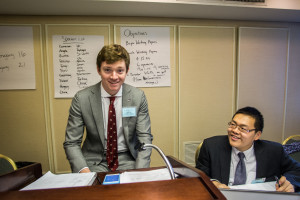
The Moderator and Chair of the Commission on Science and Technology for Development
From February 4-7, 2016, 196 University of Chicago students hosted MUNUC XXVIII at the Palmer House Hilton in downtown Chicago. The Executive Committee started preparing for the conference eleven months ago, first selecting Chairs and then placing the rest of our staff. Together, we structured and edited background guides, analyzed news articles, and mapped crisis trees. Closer to conference, we ran committee simulations. We assembled 3000 folders and badges. We moved 592 pounds of maroon sweatpants and sweatshirts.
Under the leadership of Secretary-General G. Philip Crean IV, MUNUC XXVIII sharpened its brand as an educational conference. What distinguishes MUNUC from its peer organizations is its emphasis on practical pedagogy: providing skills, training, and feedback to delegates throughout the conference weekend. On Thursday, senior staff members conduct novice delegate trainings before the first committee session. Chairs frame sessions with “committee objectives,” which keep committees efficient and allow collaboration to flourish. Assistant Chairs actively help delegates analyze and refine solutions, prepare speeches, and finalize working papers and draft resolutions.
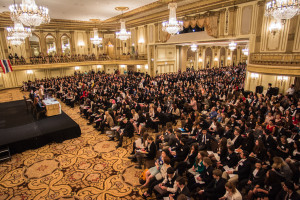
Opening Ceremonies
Another unique aspect of MUNUC’s pedagogical emphasis is its committee award structure. When every Dais determines a list of awards, “Best Delegate” is notably missing. Awards begin at the Outstanding tier; each Outstanding delegate receives a “Book Award”—a title relating to the committee topics, which is picked by the Chair. For example, George Adames, Chair of the United Nations High Commissioner for Refugees, selected “What is the What”, a New York Times bestseller that chronicles the life of a Sudanese refugee.
At Opening Ceremonies, MUNUC welcomed 2,626 delegates and 259 school advisors from 14 states and 11 countries. Mr. Crean encouraged delegates to take advantage of the academic program: “It is because through the exercise of solving the world’s problems, you will become a stronger student, a more eloquent speaker, a more effective global citizen, and a better you.” MUNUC also hosted two guest speakers: J. Matthew McInnis, a Resident Fellow of the American Enterprise Institute, and James Nondorf, Dean of Students at the University of Chicago.
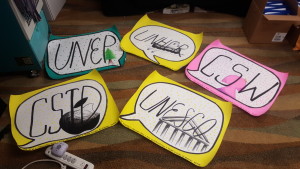
Thank-you letters for ECOSOC Chairs
The cross-section of the conference that a Under-Secretary-General sees is unique because our work is front-loaded; during the conference, our job is to support committee executives and ensure delegates learn from and enjoy debate. The most memorable tasks take the form of surprise after surprise, such as assembling Roy Lichtenstein-inspired thank-you letters for Chairs. Or greeting foreign consulates and discussing the differences between national education systems. Or juggling seven MUNUC teddy bears and pitching merchandise from committee to committee, clipboard in tow.
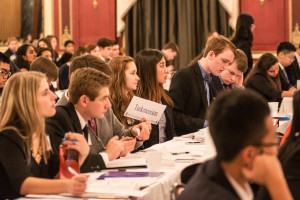
Legal Committee
When people ask if I missed being in the frontroom of a committee as a USG this year, I explain how it is still possible to know so much about the tempo and direction of five committees, and how that is uniquely rewarding. A USG does see snippets of committee sessions: we hear delegates give well-thought-out speeches and observe Assistant Chairs moderating. More importantly, we listen to delegates and staffers vividly recall committee events. In the GA-sized UNESCO, setting the agenda proved so contentious that committee entertained a roll call vote. These stories speak to the effort and energy of delegates and staffers that contribute to the dynamism of debate.
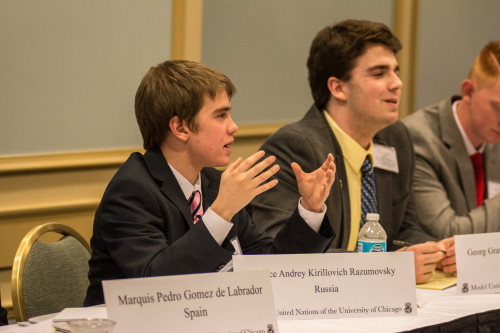
Congress of Vienna, 1815
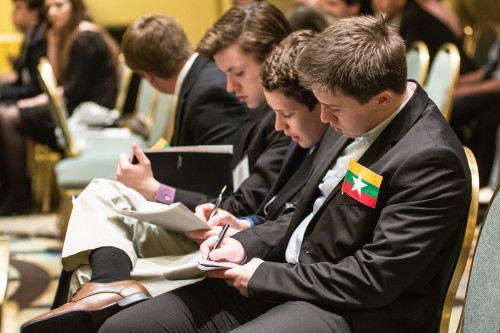
Economic and Financial Committee
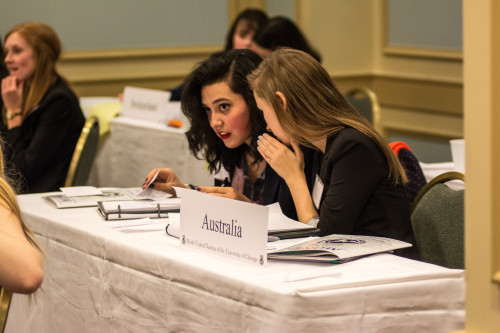
General Assembly
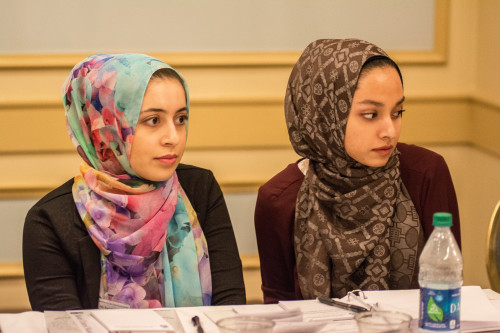
General Assembly
Saturday night is another litmus test for a USG: if you are successful at your job, your delegates cannot believe it is already Saturday, and only then do your staffers realize they have not stepped outside the Palmer House in three days. On Saturday night, MUNUC also hosted the Delegate Concert, featuring the UChicago groups Dirt Red Brass Band and Voices in Your Head, as well as local Chicago group The Ivorys.
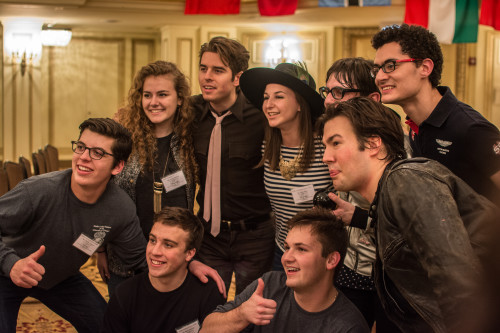
Delegates pose for a photo with The Ivorys
The value of Model UN can be summed into several words: diversity and depth in perspective. As a delegate, you represent countries or role-play individuals, learning how to balance conflicting interests and work toward common goals. MUNUC is a four-day exercise in putting diplomacy and negotiation skills into practice.
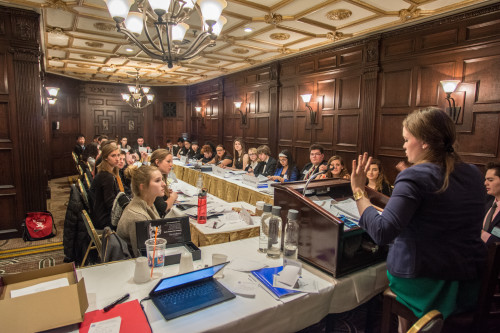
United Nations Security Council
To staffers, MUNUC is also an organization. While sitting at the Dais during Closing Ceremonies for MUNUC XXVIII, I could see snapshots of previous closing ceremonies transposed over one another. Conference experiences layer well over one another: you learn from each, but you realize there’s a crazy interaction effect. While it is difficult to recall the details of draft resolutions, you remember the people you inspired and the people who inspired you.
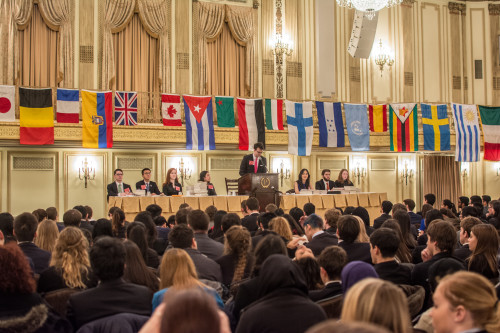
SecGen, COO, MAL and USGs at Closing Ceremonies
A huge thank you to everyone who participated in MUNUC XXVIII! Best wishes to the graduating seniors, and to everyone else, we hope to see you at MUNUC XXIX next year!


